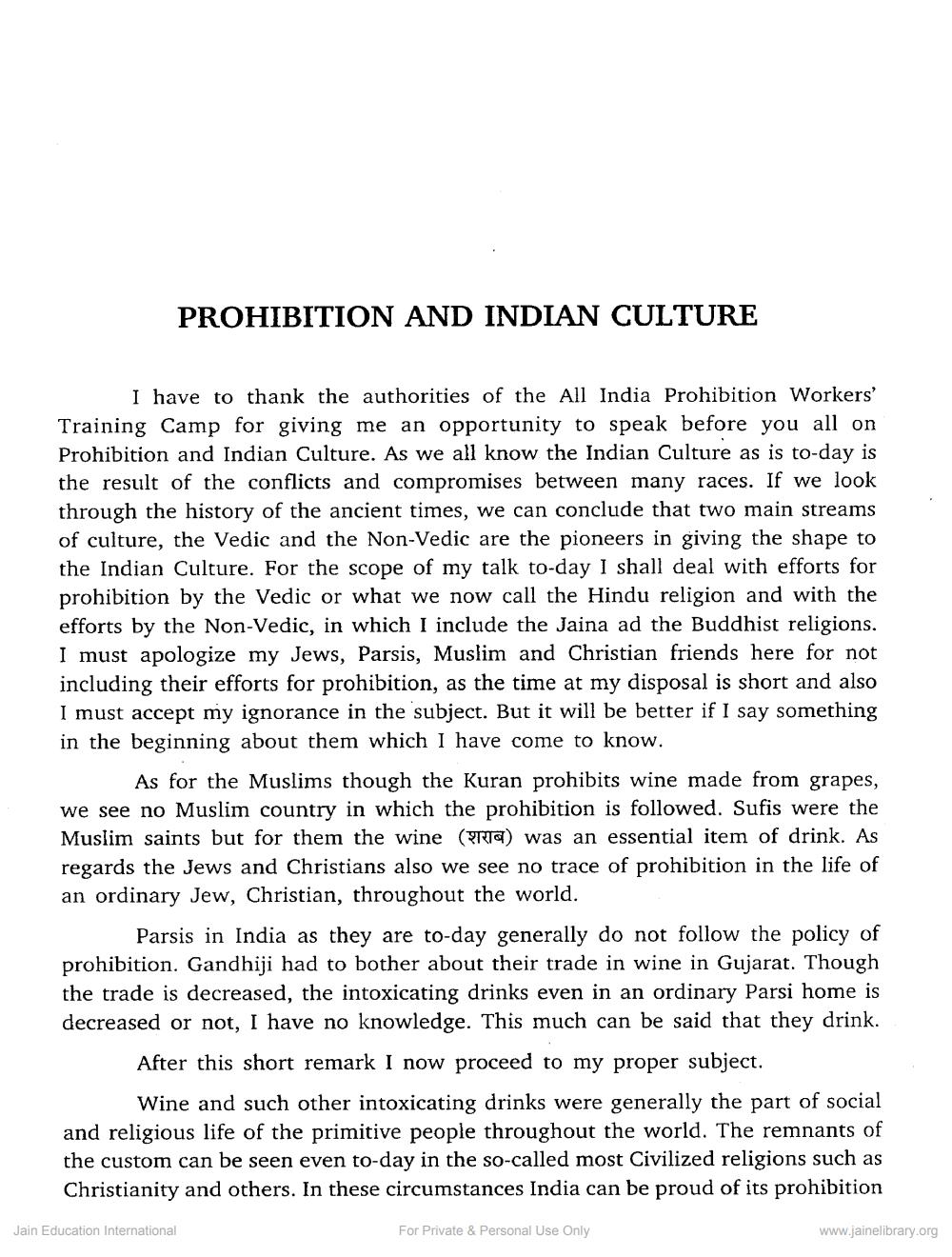________________
PROHIBITION AND INDIAN CULTURE
I have to thank the authorities of the All India Prohibition Workers' Training Camp for giving me an opportunity to speak before you all on Prohibition and Indian Culture. As we all know the Indian Culture as is to-day is the result of the conflicts and compromises between many races. If we look through the history of the ancient times, we can conclude that two main streams of culture, the Vedic and the Non-Vedic are the pioneers in giving the shape to the Indian Culture. For the scope of my talk to-day I shall deal with efforts for prohibition by the Vedic or what we now call the Hindu religion and with the efforts by the Non-Vedic, in which I include the Jaina ad the Buddhist religions. I must apologize my Jews, Parsis, Muslim and Christian friends here for not including their efforts for prohibition, as the time at my disposal is short and also I must accept my ignorance in the subject. But it will be better if I say something in the beginning about them which I have come to know.
As for the Muslims though the Kuran prohibits wine made from grapes, we see no Muslim country in which the prohibition is followed. Sufis were the Muslim saints but for them the wine (R) was an essential item of drink. As regards the Jews and Christians also we see no trace of prohibition in the life of an ordinary Jew, Christian, throughout the world.
Parsis in India as they are to-day generally do not follow the policy of prohibition. Gandhiji had to bother about their trade in wine in Gujarat. Though the trade is decreased, the intoxicating drinks even in an ordinary Parsi home is decreased or not, I have no knowledge. This much can be said that they drink.
After this short remark I now proceed to my proper subject.
Wine and such other intoxicating drinks were generally the part of social and religious life of the primitive people throughout the world. The remnants of the custom can be seen even to-day in the so-called most Civilized religions such as Christianity and others. In these circumstances India can be proud of its prohibition
For Private & Personal Use Only
Jain Education International
www.jainelibrary.org




